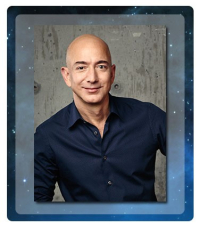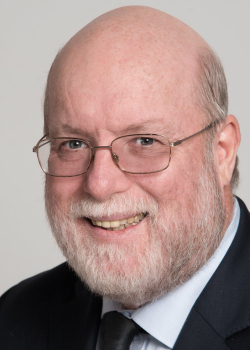
There’s not enough money. Machines are going to be doing all the work.
These are not problems. They are opportunities. The “problem” of automation and the “problem” of money are opportunities to transform life and, in time, to transform this world.
When the machines take over, and they are indeed taking over, what I call “Baby Boom retirement” can come to everyone. Automation isn’t the end of the world. It’s the beginning.
I was born at the height of the Baby Boom, in 1955. In 2020 I will reach “retirement” age, 65. For women, that peak came two years later, when the love of my life was born. She is due for retirement in 2022.
As we have grown up and grown old together, the nature of retirement has changed.
In 1934, when the Social Security Act was passed, retirement was a few years of rest before taking the Big Sleep. The average 65-year old only lived to see 67.
By my youth, when On a Clear Day You Can See Forever saw its debut on Broadway, with the song Wait Until We’re 65, retirement was a never-ending vacation. My parents’ generation all moved from New York to Florida. Robert Klein joked, “I sent you two healthy 65-year-olds, and 25 years later they come back dead!”
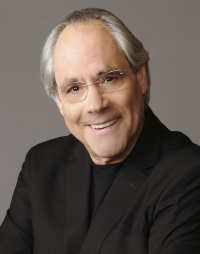
I call this Baby Boomer retirement. We do what we want to do. If you didn’t like your job, start a new career. If you want to do nothing, do that. But chances are you won’t like it. So, we’re told, volunteer. Help other people. Save the world. Or just keep on doing what you were doing, for the love of it.
This is only possible because of automation. Where once 5 workers would pay one person’s retirement, soon the burden will be shared by only 2. The Population Bomb has been defused. Birth rates are below replacement wherever even a little prosperity – a home, food, and opportunity for the kids – are in place. It only remains high in the Muslim world, which has engineered a feudal system where everything is owned by a few, the masses are beset by war over resources, and the opportunities others take for granted don’t exist.
This is the world Trump is trying to build for us.
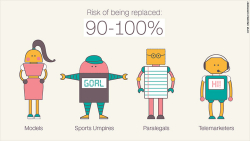
They create wealth. Wealth is the second great opportunity.
Start with a question. Where does money go when it’s lost? Where does it go when machines do all the work?
In 2008, literally at the point of an economic gun, we took the wrong path. The banks lost all the money. They made bad bets. What “Helicopter Ben” Bernanke did, what Andrew Mellon should have done to beat the Great Depression, was that he gave all that money back. There’s less money, we’re facing deflation. OK, here’s new money. Drop it out of helicopters if you want. Just declare the money supply to be bigger, and it’s bigger.
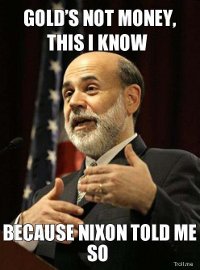
Bernanke was not empowered to give that money to anyone but bankers. The $1 trillion Obama stimulus put some money into peoples’ hands, but the lesson was missed. Republicans claimed the stimulus was a bad thing. It raised the debt, they said. Tax cuts, they said, don’t. Even though money is money. This was a nonsense 30 years ago, and it’s a bigger nonsense today.
What the Great Recession proves is that if money disappears we can create new money. Money is potential energy. Money is a verb, not a noun. It only really exists when goods are being exchanged, as the medium of that exchange. As the amount of goods and services increase, so must the money supply, or you have deflation.
In the world of Moore’s Law, where everything is automated, immense value is being created.
It’s more money than you can imagine, enough so that we can all get that Baby Boom retirement. Want to sit in a casino, chain-smoking cigarettes and pounding quarters into a slot until it kills you? Go for it. Want to teach children, or tell jokes, or make policy, or write? You should be able to do it.
You should be able to do it because the value will exist, in the economy, in the work done by the machines, to make it happen.
What stands in the way? Politics.
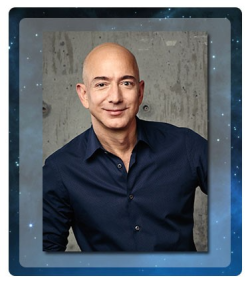
It’s happening in technology, in the process of automation itself.
Consider. Jeff Bezos is now worth $113 billion. Even he doesn’t know what to do with it. He’s wealthier than Bill Gates, however, only because Gates has spent the last decade giving away his fortune, $36 billion so far. Despite all his good work, making sure that money goes to good causes, Gates is still worth $92 billion. So is Warren Buffett, whose $92 billion fortune he was also charged with giving away, back when both men were worth about $50 billion each. As fast as Gates and Buffett have been handing over their fortunes, those fortunes have been growing, even faster.
There is immense opportunity to make billions of lives better by simply recycling the wealth created by Moore’s Law. Soak the rich? You’ll make them even richer. As the screenwriter Stanley Weiser wrote (for the Gordon Gecko character in Wall Street) “a fool and his money were lucky to have gotten together in the first place.”
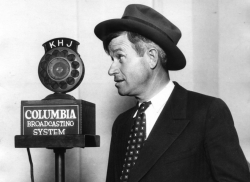
This election was lost four and six years ago, not this year. They [Republicans] didn’t start thinking of the old common fellow till just as they started out on the election tour. The money was all appropriated for the top in the hopes that it would trickle down to the needy. Mr. Hoover was an engineer. He knew that water trickles down. Put it uphill and let it go and it will reach the driest little spot. But he didn’t know that money trickled up. Give it to the people at the bottom and the people at the top will have it before night, anyhow. But it will at least have passed through the poor fellow’s hands.
We can give the new value being created by machines to capital, where it will only be piled higher-and-higher, squirting out now and then in random acts of philanthropy, or getting lost at the dog track, forcing us to put it back into the hands responsible for the loss. Or we can put that money to work, put it in the hands of people, who will spend it and pay taxes on it, creating a virtuous cycle that can pull the whole world out of poverty and give billions that Baby Boom retirement, where we can finally focus on saving human life on this planet.
Men like Jeff Bezos, Mark Zuckerberg, Larry Page and Sergey Brin, the cloud czars as I call them, have a choice, one they’re not yet facing. They’re like Tom Lehrer’s Werner Von Braun. “Once the rockets go up who cares where they come down, that’s not my department.”
Well it is your department. Stop hiding in the clouds.


